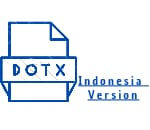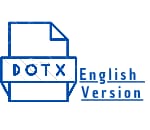LAPORAN ARUS KAS, PRODUKTIVITAS KARYAWAN PADA KINERJA PERUSAHAAN : BUKTI DARI PERUSAHAAN FOOD AND BEVERAGE
DOI:
https://doi.org/10.35137/jabk.v10i2.24Keywords:
Statement of Cash Flow, Employee Productivity, Company PerformanceAbstract
This study aims to examine the effect of Cash Flow Reports and Employee Productivity on the Performance of Food and Beverage Companies Listed on the Indonesia Stock Exchange in 2019 – 2022. The data used in this research is quantitative data. The sampling technique used purposive sampling obtained a total number of samples. 76 data. Data collection with documentation and data processing with t test, f test, and test the coefficient of determination of multiple linear regression using the classical assumption test. The results of the study show that the Cash Flow Report as measured by Operating Cash Flow (AKO) has a positive and significant effect on company performance; Employee productivity as measured by Revenue Per Employee (RPE) has a positive and significant effect on company performance; Statements of Cash Flow as measured by Operating Cash Flow (AKO) and Employee Productivity as measured by Revenue Per Employee (RPE) have a positive and significant effect on company performance. As for suggestions related to this research, companies listed on the Indonesia Stock Exchange should improve company performance to increase company value. This will affect the profit that will be generated. The better the company's performance will make investors interested in investing or investing in the company.
Downloads
Downloads
Published
Issue
Section
License
Copyright (c) 2023 Mishelei Loen, M.Si.

This work is licensed under a Creative Commons Attribution-NonCommercial-ShareAlike 4.0 International License.
Authors retain the copyright of the work published in this journal and grant first publication rights to the journal. Authors may make separate, additional contractual arrangements for non-exclusive distribution of the journal-published version of the work (e.g., posting it to an institutional repository or publishing it in a book) with acknowledgment of its initial publication in this journal. Authors are permitted and encouraged to post their work online (e.g., in institutional repositories or on their websites) before and during the submission process, as it can result in productive exchanges, as well as earlier and greater citation of the published work.
Use of published articles will be governed by the Creative Commons Attribution license as currently displayed at Attribution-NonCommercial-ShareAlike 4.0 International (CC BY-NC-SA 4.0).




